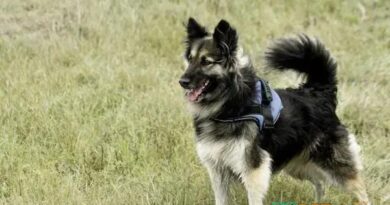What is: Young dog social skills
What is Young Dog Social Skills?
Young dog social skills refer to the essential abilities that puppies develop to interact effectively with other dogs and humans. These skills are crucial for their overall behavior and well-being. Socialization during the early stages of a dog’s life helps them learn how to communicate, play, and establish boundaries, which are vital for a harmonious coexistence in various environments.
The Importance of Early Socialization
Socialization is most effective when it occurs between the ages of three weeks and sixteen weeks. During this critical period, young dogs are more receptive to new experiences, sounds, and sights. Exposing them to different environments, people, and other animals helps them build confidence and reduces the likelihood of fear-based behaviors later in life.
Key Components of Young Dog Social Skills
Young dog social skills encompass several key components, including play behavior, communication signals, and understanding social hierarchies. Play behavior allows puppies to learn about their physical limits and develop coordination. Communication signals, such as barking, growling, and body language, are vital for expressing emotions and intentions, while understanding social hierarchies helps them navigate interactions with other dogs.
Play Behavior and Its Role
Play is a fundamental aspect of developing social skills in young dogs. Through play, puppies learn to engage with their peers, practice bite inhibition, and understand the concept of turn-taking. This playful interaction is not just fun; it is a critical learning experience that shapes their future behavior and social interactions.
Recognizing Communication Signals
Understanding and recognizing communication signals is another essential aspect of young dog social skills. Puppies use a variety of vocalizations and body language to convey their feelings. For instance, a wagging tail often indicates excitement, while a lowered body posture may signify submission or fear. Teaching puppies to interpret these signals helps them respond appropriately in social situations.
Establishing Boundaries with Other Dogs
Young dogs must learn to establish boundaries with their peers to prevent aggressive or overly dominant behaviors. This involves understanding when to engage in play and when to retreat. Proper socialization helps puppies learn to read the body language of other dogs, allowing them to navigate social interactions more effectively and avoid conflicts.
Socialization with Humans
In addition to interacting with other dogs, young dog social skills also include learning how to interact with humans. Positive experiences with people during their formative weeks can lead to well-adjusted adult dogs. This includes exposure to different types of people, such as children, seniors, and individuals with disabilities, to foster a sense of comfort and trust.
Common Challenges in Developing Social Skills
While socialization is crucial, some young dogs may face challenges in developing their social skills. Fearfulness, shyness, or previous negative experiences can hinder their ability to interact positively with others. Identifying these challenges early on and providing appropriate support, such as training classes or supervised playdates, can help overcome these obstacles.
Training Techniques to Enhance Social Skills
Utilizing positive reinforcement training techniques can significantly enhance a young dog’s social skills. Rewarding desired behaviors with treats, praise, or play encourages puppies to engage positively with others. Additionally, structured socialization sessions, such as puppy classes, provide a controlled environment for young dogs to practice their skills under the guidance of experienced trainers.
Long-Term Benefits of Strong Social Skills
Investing time in developing young dog social skills yields long-term benefits for both the dog and their owner. Well-socialized dogs are generally more adaptable, less prone to behavioral issues, and more enjoyable companions. They can navigate various environments with ease, making outings and interactions with other pets and people a more pleasant experience.



